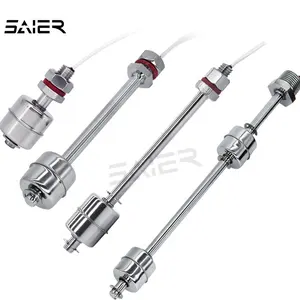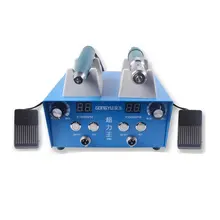What are Levels
Levels are precision instruments used in various industries to ensure that surfaces are horizontally or vertically aligned. They are essential for professionals such as builders, carpenters, masons, surveyors, and DIY enthusiasts who require accurate leveling for construction, woodworking, landscaping, and other similar tasks. The fundamental principle behind a level is to use a visual guide, typically a bubble in a liquid-filled vial, to indicate when a surface is perfectly horizontal or vertical (plumb). The bubble is centered between marked lines on the vial when the surface is level.
More advanced levels, such as laser levels, project a beam of light that provides a straight line reference along a surface or from one point to another. Laser levels can be used over longer distances and in brighter conditions where traditional spirit levels might not be as effective. They come in different forms, from simple point lasers to sophisticated rotary lasers that can emit a 360-degree horizontal or vertical beam around a room or work area. These tools are crucial in projects that require precise alignment over large areas or in complex layouts where manual checking would be time-consuming and prone to error.
The accuracy of leveling tools is paramount as even small deviations can lead to significant issues in construction and manufacturing. High-quality levels are designed with durability and precision in mind, often constructed from robust materials like aluminum, stainless steel, or heavy-duty plastics. They may also include features like magnetic strips for adherence to metal surfaces or rubber end caps for shock absorption.
Types of Levels
In the realm of construction and DIY projects, various types of levels cater to specific needs and applications. For instance:
Spirit Levels: These are the most common types of levels and consist of one or more vials filled with liquid and an air bubble. The position of the bubble within the markings on the vial indicates whether the surface is level. Spirit levels come in different lengths for various tasks, from small torpedo levels for tight spaces to longer carpenter's levels for broader surfaces.
Laser Levels: Laser levels emit a bright beam of light to provide a straight line reference on work surfaces. They range from simple point lasers to more complex rotary lasers that can project lines around an entire room. These are invaluable for tasks requiring long-range accuracy such as hanging cabinets or laying tiles.
Box Beam Levels: Known for their durability and strength, box beam levels have a box-like profile that resists bending and twisting. They're particularly suited for heavy-duty construction work where precision and tool longevity are critical.
Torpedo Levels: Compact and portable, torpedo levels have tapered ends and are designed for use in confined spaces. Their small size makes them ideal for plumbers and electricians who often work in cramped conditions.
Digital Levels: These levels incorporate electronic sensors to measure angles with high precision. Digital readouts can provide measurements in various units making them suitable for high-tech applications or when converting measurements between formats is necessary.
Each type serves a unique purpose; hence selecting the right one depends on the job at hand – whether it requires long-distance accuracy or maneuverability in tight spaces.
How to choose Levels
Choosing the right level from Alibaba.com's extensive selection requires understanding your specific needs and the types of jobs you plan to tackle. Consider the following factors:
Application Specificity: Match the level type to your task. For example, if you require precision over long distances or around entire rooms, you'll benefit from investing in a good quality laser level. Conversely, if your work is predominantly in tighter spaces or involves metal structures, a torpedo level with magnetic properties might be more suitable.
Material Durability: Selecting a level made from robust materials like aluminum or stainless steel ensures longevity and maintains accuracy over time. For less demanding tasks or occasional use, plastic levels may suffice.
Length and Size: The size of the level should correspond with your typical workspace. Longer levels are necessary for larger surfaces but may be cumbersome in compact areas where shorter torpedo or digital levels would be more practical.
Precision Requirements: High-accuracy tasks demand high-quality tools. Laser and digital levels offer precision measurement capabilities that traditional spirit levels may not achieve.
Factor in these considerations while browsing through Alibaba.com's offerings to ensure you procure a level that meets your business needs effectively.
Best Levels on Alibaba.com
Alibaba.com is an expansive marketplace uniting buyers with suppliers globally and offers an extensive selection of leveling tools suitable for businesses at every scale. Whether your company specializes in construction, interior design, surveying, or home improvement projects, finding the right supplier for wholesale levels is made accessible through Alibaba.com's platform.
The comprehensive range includes everything from sturdy box beam and spirit levels for industrial applications to sophisticated laser levels that cater to precision tasks required by modern construction methodologies. With options available in various materials like aluminum, steel, ABS plastic, each business can select products tailored to their operational demands.
Moreover, Alibaba.com simplifies international trade by offering services like Trade Assurance that protect payments until delivery completion, ensuring transactions are secure and trustworthy. The platform's commitment to helping businesses expand their reach by providing specialized trading experiences makes it an excellent choice for sourcing leveling tools on a wholesale basis. With Alibaba.com's user-friendly interface and support services, procurement becomes seamless allowing businesses worldwide access to high-quality equipment vital to their operations.
Common FAQs for Laser Levels
What is the main advantage of using a laser level over a traditional spirit level?
Laser levels provide a visible line over longer distances and can project horizontal or vertical lines around an entire room, making them ideal for tasks that require precise alignment.
Can laser levels be used outdoors in bright sunlight?
Some laser levels are designed for outdoor use and have beams that are visible even in bright conditions, but it's important to check the specifications of the level for suitability in outdoor environments.
How accurate are digital levels compared to traditional levels?
Digital levels can offer more precise measurements with electronic sensors and digital readouts, which can be particularly useful when exact angles are required or when converting between measurement units.
Are there different types of laser levels for specific tasks?
Yes, laser levels come in various types such as point lasers, line lasers, and rotary lasers, each designed for specific applications ranging from simple alignment tasks to providing 360-degree leveling capability for an entire area.
What materials are commonly used to manufacture levels?
Levels are typically made from aluminum, plastic, stainless steel, ABS, metal, or steel to ensure durability and maintain accuracy over time.
How do I know if a level is suitable for industrial use?
Levels marketed as industrial-grade are generally constructed with robustness in mind and are capable of withstanding the harsher conditions found on construction sites or in manufacturing environments.
What should I consider when choosing a level for DIY projects?
For DIY projects, consider the size and complexity of your tasks. Smaller torpedo levels might be suitable for quick jobs, while more extensive work may benefit from longer box beam levels or versatile laser levels.
Can laser levels be used for tasks like tiling or installing cabinetry?
Yes, laser levels are particularly useful for ensuring straight lines and consistent alignment when tiling walls or floors and installing cabinetry or other built-in furniture.









































 浙公网安备 33010002000092号
浙公网安备 33010002000092号 浙B2-20120091-4
浙B2-20120091-4